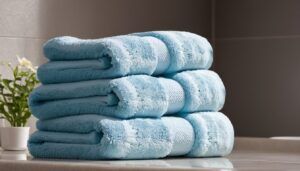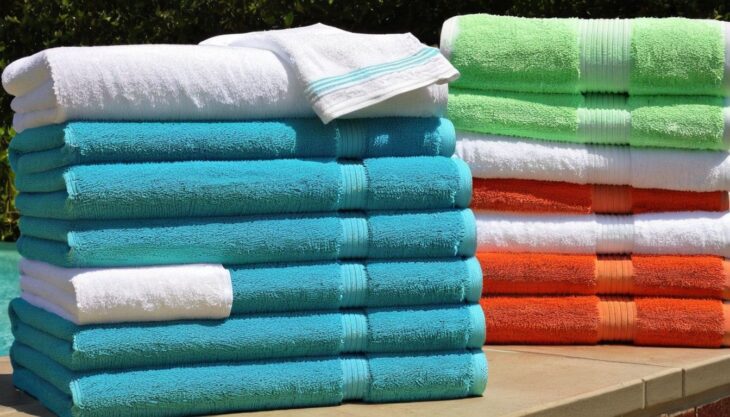What Makes a Quality Towel? Unveiling the Secrets to Luxurious Comfort
Introduction
Not only are towels useful, but they are also comfortable and useful daily companions. From the quick absorption of a thick kitchen towel to the soft caress of an opulent bath towel, the quality of a towel can have a big influence on our everyday life. Making wise selections requires understanding the characteristics of a high-quality towel. A towel’s absorbency, durability, weave techniques, and kind of material are only a few factors that affect its quality. You may select the ideal towel for your requirements by learning what to look for, whether you’re searching for plush bath towels for your house or sturdy towels for your place of business.
Towel Material Matters
Cotton Towels
A towel’s material choice is one of the most important factors to consider. Different materials have different properties that can affect a towel’s softness, absorbency, durability, and overall functionality.
Cotton is a material that is frequently used to make towels because it is soft, absorbent, and durable. Egyptian cotton towels are known for their extraordinary absorbency and come in long-staple, luxurious designs. Turkish cotton is highly prized for its long fibers and outstanding absorbency, making it a wonderful substitute for velvety, quickly drying towels.
Synthetic microfiber is made of tightly woven strands and is highly absorbent and quickly dries. Microfiber towels are ideal since they are light and ideal for sporting events or vacations.

Towel Density and Weight
Weight and towel density are crucial aspects to take into account when selecting a high-quality towel. The amount of fibers per square inch, usually expressed in grams per square meter (GSM), determines a towel’s density. Because they are denser and more absorbent, towels with a higher GSM are perfect for bath towels and other high-use uses.
Density and weight of a towel are intimately correlated, with heavier towels typically being more plush and absorbent. However, other criteria like fiber type and manufacturing also play a considerable influence in determining a towel’s quality, thus weight alone is not a trustworthy predictor.
A GSM of 500 to 700 is said to be typical for bath towels, offering a compromise between absorbency and durability.
Absorbency: The Ultimate Test
Role of Fibers in Absorbency
When evaluating a towel’s quality, absorbency is an important consideration because it has a direct effect on how well the towel dries. Whether it’s water from the body after a shower or spills in the kitchen, a highly absorbent towel can rapidly and effectively absorb moisture. A number of factors affect towel absorbency, such as the density of the towel and the kind of fibers employed in the weaving process.
The capacity to hold onto moisture is a notable quality of natural fibers such as cotton and bamboo, especially the long-staple varieties. Furthermore more absorbent than towels with a flat weave are terry weave towels, which have loops that enhance surface area.
Towel Size and Thickness
Selecting the appropriate towel for your purpose requires careful consideration of factors including towel size and thickness. Bath towels are usually the largest and washcloths the smallest, though towel sizes can vary greatly. Bath towels measure approximately 27 by 52 inches, although washcloths are usually 13 by 13 inches in size.
Grams per square meter, or GSM, is a common unit of measurement for towel thickness; thicker and plusher towels have greater GSM values. Although thicker towels may take longer to dry, they are frequently thought to be more opulent and absorbent.
Durability and Longevity
The lifespan and durability of a towel are crucial considerations when choosing one of superior quality. If after multiple washings and uses a towel still feels soft and absorbent, it is deemed durable. A towel’s lifespan is influenced by its overall design, weaving technique, and fiber quality.
When it comes to towels, higher-quality fabrics like bamboo or long-staple cotton typically have a longer lifespan than lower-quality fibers. Furthermore, stronger and less prone to fray or pill, towels with a tighter weave and a higher thread count tend to be.
Proper maintenance and care also affect how long a towel lasts.
Weaving Techniques
A towel’s texture, absorbency, and general quality are all determined by its weaving techniques. Towels are made via a number of popular weaving processes, each with special advantages and qualities.
In towel weaving, terry weave is the most widely used method. Loops on both sides of the towel’s cloth give it more surface area and improve absorption power. Terrific for use as bath towels, terry cloths are fluffy, silky, and incredibly absorbent.
A popular method for weaving towels is the waffle weave. By creating a honeycomb pattern on the towel’s surface, this method improves its absorption of water. The lightweight and quick drying qualities of waffle weave towels make them a popular option for kitchen and spa towels.
Towel Color and Dye
The color of a towel can affect its durability, look, and even environmental impact. While choosing a towel color, you should take into account factors like colorfastness, the dyeing process, and how the color complements your environment.
To create the colors shown on towels, dye—which is available in synthetic and natural forms—is typically utilized. Natural dyes, such as those derived from plants or minerals, are more environmentally friendly even though they might not be as colorfast as synthetic ones. Synthetic hues may still be harmful even when they are more environmentally friendly.
Eco-Friendly Towels
Eco-friendly towels are being used by more customers in an effort to lessen their influence on the environment. These towels are made using sustainable materials that are sourced using eco-friendly production techniques.
Eco-friendly towels are often composed of organic cotton or other sustainable materials. Organic cotton is better for the environment and the health of the growers because it isn’t grown with synthetic fertilizers or pesticides. Additionally, compared to regular cotton towels, organic cotton towels tend to be stronger and softer.
Towels that are environmentally friendly can also be made from bamboo. Bamboo presents an exceptionally sustainable option because of its quick growth, minimal water needs, and non-reliance on pesticides. Since bamboo towels are inherently hypoallergenic and antimicrobial, people with sensitive skin will adore them.
Towel Care Tips
1.To increase absorbency and get rid of extra lint, wash towels before using.
2.Separate laundry should be done for towels and clothing with hooks or zippers that could snag and rip the fabric.
3.To prevent the fibers from deteriorating and becoming less absorbent, use a mild detergent in place of bleach or fabric softeners.
4.Towels’ suppleness may be diminished and fibers may be damaged by hot water washing. Instead, make use of warm water.
5.Filling the washing machine to the brim will lessen the fluff and make cleaning more difficult.
6.To preserve their softness and absorbency, either air dry them or tumble dry them on a low heat setting.
7.Towels may become less absorbent and leave behind residue if dryer sheets are used.
Luxury Towels: Worth the Splurge?
High-End Materials and Craftsmanship
High-end fabrics like Turkish or Egyptian cotton, which is prized for its extraordinary softness, absorbency, and durability, are frequently used to create luxury towels. These towels often contain finer fibers and a greater thread count, which gives them an opulent feel.
Luxury towels can cost more up front, but because of their higher quality and longer lifespan, many individuals decide that the investment is worthwhile. Luxury towels are a durable and wise purchase because they frequently keep their softness and absorbency even after several washings.
Luxurious towels not only function better but also improve the towel-using experience in general. Your everyday routine might feel a little more luxurious with the softness and plushness of a luxury towel, which can make you feel comfortable and pampered.
Budget-Friendly Quality Towels
There are high-quality towels that are reasonably priced and can offer outstanding performance without breaking the budget. Seek for towels composed of materials such as regular cotton, which can yet provide decent absorbency and strength. Lower GSM towels (about 300–400) can be more reasonably priced without sacrificing quality.
Look for towels that are simpler in style and have less ornamentation; these are usually less expensive. When buying towels, look for promotions, discounts, or multi-pack discounts to save money.
Regardless of its cost, regular upkeep and care can also help your towels last longer. To maintain their quality, wash them in warm water with a light detergent; do not use fabric softeners; tumble dry on low heat or let them air dry.


Amazing article
Nice article
impressive
I like it
Nice 🥰